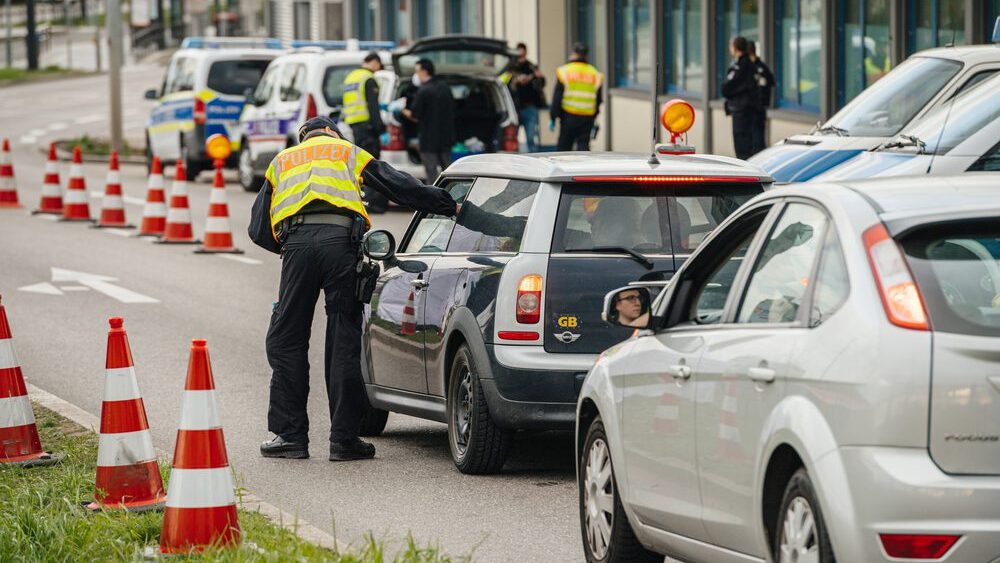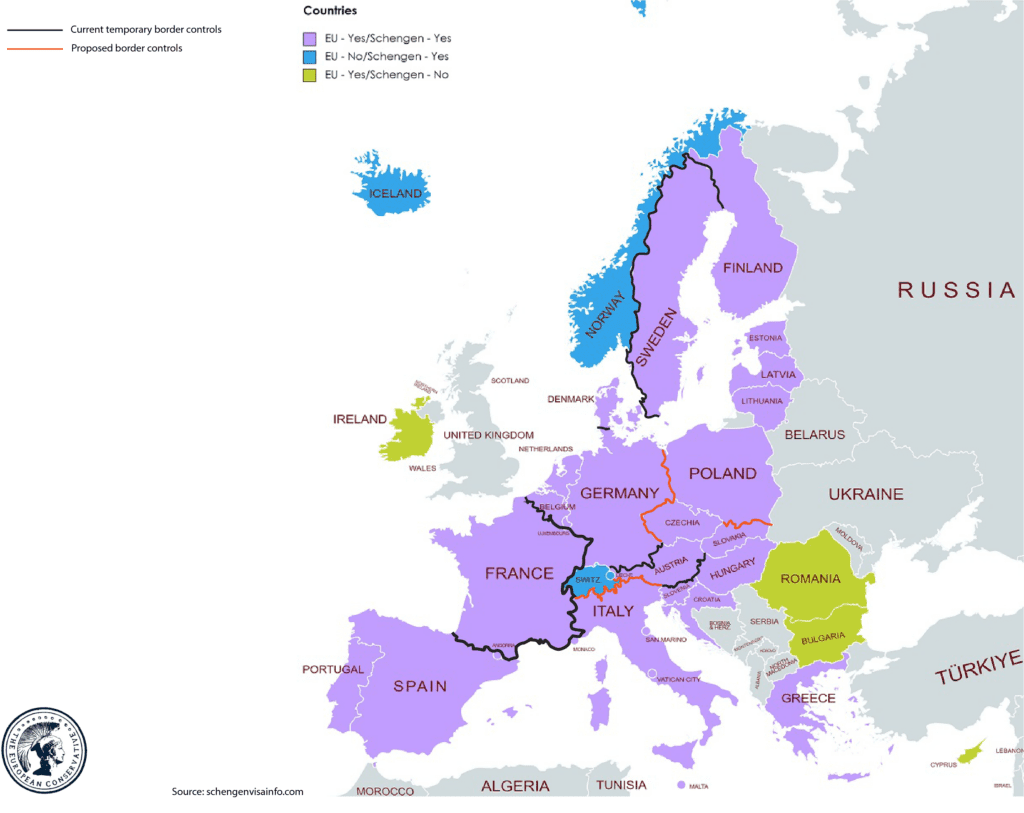
Border crossing at Kehl, Germany
Photo: Hadrian / Shutterstock.com
An ever-growing number of political forces in Europe are calling for the reintroduction of temporary border controls within the Schengen Area, as member countries struggle to cope with illegal migrants entering Europe via Italy and the Balkans.
Germany is considering establishing short-term border controls with Poland and the Czech Republic, Austria is planning to do the same on its borders with Italy, and the Polish government announced on Monday, September 25th, that it would introduce checks on vehicles arriving from Slovakia. Germany’s Interior Minister Nancy Faeser told German newspaper Welt am Sonntag that setting up temporary police checks on border crossings would help Germany prevent the trafficking of people.
German authorities have recorded 71,000 illegal border crossings in the first eight months of this year, which means this year’s numbers are certain to surpass last year’s, as there were 92,000 such crossings in the whole of 2022. There was also a 77% increase in the number of asylum applications made in Germany from January to August compared to the same period last year. Meanwhile, Austria has been able to reduce the number of asylum seekers from 112,000 last year to 35,000 in the first two-thirds of this year, with the interior ministry citing tighter border controls and stricter visa policies implemented by Serbia as contributing factors.

Germany currently has temporary checks in place on its border with Austria, and Austria on its borders with Hungary and Slovenia. These controls have been in place since the start of the European migration crisis in 2015. While people can travel freely within the Schengen Area—consisting of 23 EU member states, plus Iceland, Liechtenstein, Norway, and Switzerland—countries can temporarily reintroduce border controls at their internal borders in the event of a serious threat to security. Aside from Austria and Germany, Denmark, France, and Sweden have also had temporary border controls in place since 2015-16. According to the European Commission’s website, Denmark cites an “islamist terrorist threat, organised crime, smuggling, the Russian invasion of Ukraine, irregular migration” as reasons for maintaining checks on its border with Germany; Sweden also points to the islamist terrorist threat for having controls on all its internal borders; France cites “terrorist threats” and an “increase in irregular entry flows at the external borders” of Schengen. In practice, border controls mean long queues often occur when crossing one of these borders by road as police pull aside vehicles for spot checks. Meanwhile, due to the war in Ukraine and Western sanctions on Russia, Norway carries out checks in its ports that have ferry connections to the Schengen Area.
Austria, France, and Switzerland have all announced in recent weeks that they would be strengthening their borders to curb migration, as thousands of African migrants keep flooding the Italian island of Lampedusa. French Interior Minister Gérald Darmanin has categorically stated that France will not take in any migrants from Lampedusa, the German Interior Ministry said it will also stop taking in migrants from Italy, and Italy has pledged to bring Austria before the European Court of Justice for its decision to reinstate border controls.
The Central Mediterranean route has seen a huge rise in the number of illegal migrants, with irregular crossings almost doubling. According to the European Border and Coast Guard Agency Frontex’s latest data, more than 114,000 people—most of them Ivory Coast, Tunisia, and Guinea nationals—made their way into Europe through this route in the first eight months of the year, a 96% rise compared to the same period last year. The number of detections of irregular border crossings at all of the EU’s external borders rose by 18% to over 232,000, the highest total for the January-August period since 2016.
The migration crisis is causing tensions all over Europe, with growing calls for tightening border controls. Former Slovakian Prime Minister Robert Fico—whose Smer party is expected to win Saturday’s parliamentary elections—has urged his government to start checks on the border with Hungary. “This is a fundamental step we have to make. Unless we start halting the flow of illegal migrants to Slovak territory, we will not be able to resolve the situation inside Slovakia,” he recently said, as the number of detained illegal migrants has soared ninefold from a year ago, to more than 27,000 so far this year. Slovenian conservative opposition party SDS has also berated the Ljubljana government for its “inadmissible policy of open doors for migrants”, and demands that the army be deployed to the border. By the end of July, the Slovenian police recorded nearly 26,900 illegal border crossings, a significant increase over the 10,100 in the same period last year, reports EurActiv.
The establishment of the Schengen Area has been one of the European Union’s most important achievements, yet migration waves and terrorist threats are understandably worrying member states, who are exercising their rights as sovereign countries. The left-liberal majority of the European Parliament would, however, take these rights away, as The European Conservative reported. The EP’s civil liberties committee voted to adopt a proposal that would make it harder for member states to implement border controls.
“Reintroducing border controls must remain exceptional, strictly limited in time and a measure of last resort if a serious threat to public policy or internal security has been established,” European Commission Spokesperson for Home Affairs Anitta Hipper clarified the commission’s position in a response to a question from The European Conservative. She added that Brussels has been working closely with member states to address long-lasting reintroductions of controls at internal borders, and launched a formal consultation process this May, which is currently ongoing.
